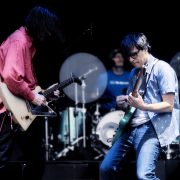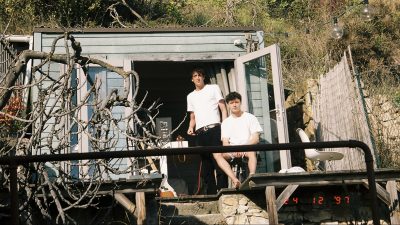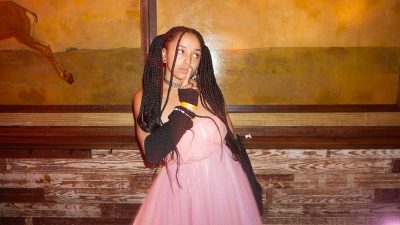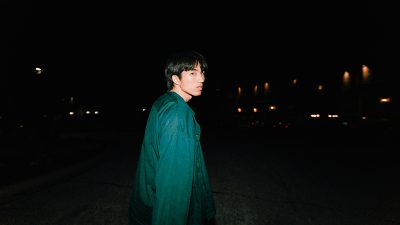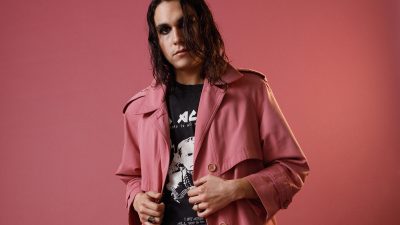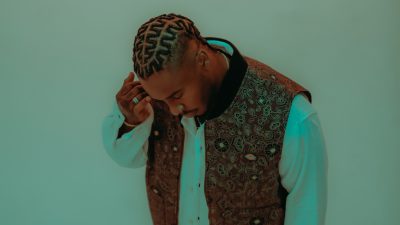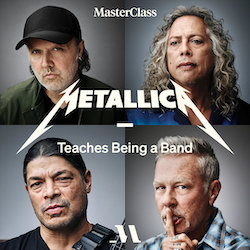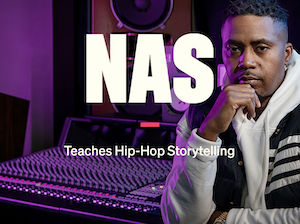Revisiting boyhood. An interview.
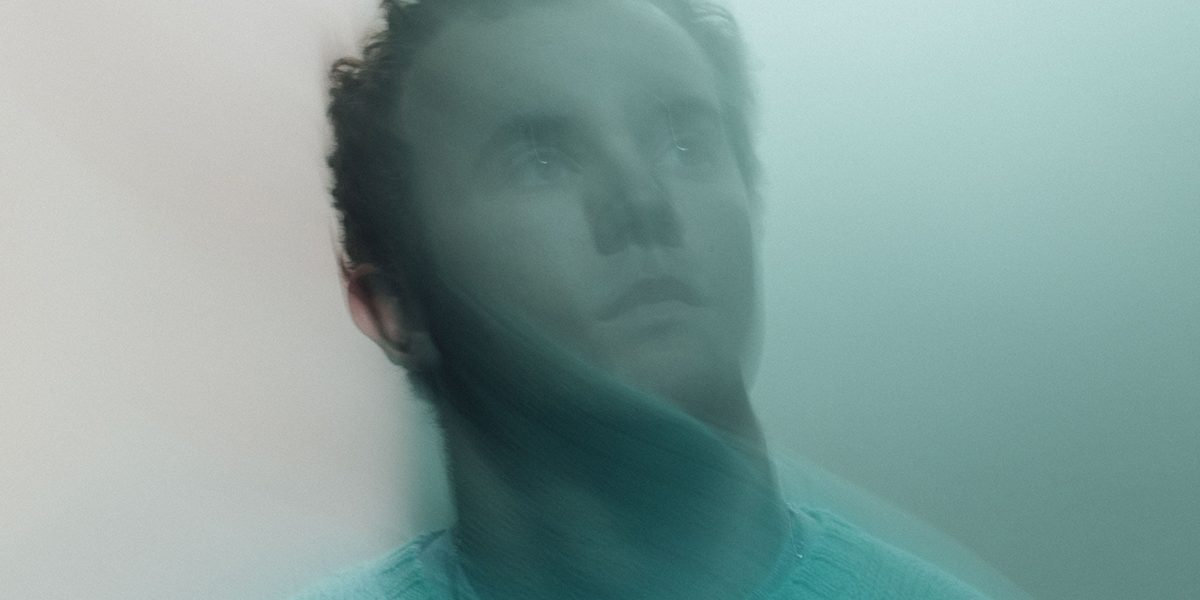
The imagery unfurled by boyhood’s music is chromatic and blurry, like wispy clouds on a summer dusk, or winter morning. Glitchy production embeds the delicate vocals and is often layered with effects and bountiful harmonies. It’s a glass world, sadboi-adjacent, surely, but let that not dissuade you from his unique execution, the extent of which rivals mainstream contemporaries.
AJ Jaramaz launched the project with 2019’s Ipsum five-track, leading to live sessions and a particular Donna Lewis cover that hit the right wavelength in 2021. Now, boyhood. Is closing out the year with I Know, It’s Coming, a mini-album that further ornaments the Pittsburgh native’s indie-electronic catalog. The project dropped last week, spearheaded by the remarkable “Crash” released earlier this year, and so on the eve of release, we had a chat. Delve deeper into AJ’s songwriting process, future projects, and the story behind the curious moniker.
Audrin Baghaie: How would you describe your growth between the new release and your first EP?
AJ Jaramaz: You can hear me learning how to mix and produce back then like the last song on [Ipsum] is a lot better than the first, I was throwing everything at the wall to see what sticks. There was no roadmap. This new EP has a lot more collaboration, my friend Steve mixed four out of the five tracks, and one was produced with the band Toledo. I got a lot more outside feedback on it from sending it to other musicians and friends, there were specific reference points too. “Crash” was the first single that came out and the first song finished, so it was still a little bit in that headspace of throwing stuff and seeing what I liked.
AB: “Crash” is definitely the bridge between Ipsum and now
AJ: The heart of it is liking a lot of different kinds of music, and wanting to incorporate different ideas. It’s with more intent this time, more outside perspective, which has been helpful in the new stuff that I’m writing.
AB: What’s the forecast on the new stuff?
AJ: I’ve started banking up a folder of demos for the third EP, hoping to do that one much faster. I have a shared studio space here in New York and a few times a week [my roommate and I] share stuff and work together. I used to write when I was feeling most inspired or most emotional, now it’s a more daily habit rather than little bursts. I’m hoping to keep working on new music, hopefully, a fruitful end to 2023.
AB: Musically your themes are often encompassed by a melancholic atmosphere. It’s very wispy and emotional and sentimental. Where does that come from? How does that resonate with you?
AJ: I love a little melancholy. I like a feeling of nostalgia, and taking that feeling or reverence that people have for something that never really existed, and applying that to the present. Having that reverence for day-to-day life, or current relationships and friendships, all that stuff. I started taking voice lessons a year ago and I like wispy, ambient sounds but I’m also incorporating different ideas to mix it up a little. Like I’m learning how to do screaming vocals right now.

AB: Boyhood going aggressive, or metal? Manhood?
AJ: We’ll see what happens. I’ve been listening to Turnstile and, I don’t think I’ll ever be Turnstile, but I like a chorus switch up or adding different kinds of vocal texture to the recording. I was reading about the way Dijon recorded his last album where they’ve got an AKG 414 in the middle of the room and it’s picking up all the room sound. He’s singing in a way that’s not full-out screams, but it’s pretty scream-leaning. I like the texture of that noise and playing around with different recording techniques. I hope to do more of it.
AB: I feel like you can implement it very powerfully in somber music, it can be cathartic to scream, it’s going to be very powerful.
AJ: [Amused] Yeah, watch this space.
AB: Is there anything you’ve learned to implement for whatever becomes the 3rd record?
AJ: For the first project, I was swapping out the music the day of, or tweaking little things just before. I was putting stuff out as I finished it rather than having a cohesive plan, I think it worked for the moment, I was doing my best. This is the first time that a project was finished with a structured release, by the time it comes out, it’ll have been out of my hands for eight weeks. In those eight weeks, I’ve been writing and learning different production techniques. There’s a difference, hopefully not a huge difference sonically, but from where I was starting and now having finished it. It’s a project that’s all very much from the same point in my life, rather than being spread out over the course of a year.
AB: Can you talk about your “I Love You Always Forever” cover? It blew up, real quick
AJ: That song was all around my house for some reason as a kid, I listened to it all the time. I feel like it was in a movie I watched growing up. During the pandemic, my friend Gabe was making a Bandcamp mixtape and asked if I wanted to work on something together. I ended up putting it out through Indie Mono, which is a label distributor, and it found a wider audience. But yeah, I love that song. That’s a fucking bop, people don’t appreciate her enough.
AB: What’s in a name? Where did boyhood come from?
AJ: The name boyhood is an homage to being trans and growing up without an experience, or a normal experience, of boyhood. I think for a long time that was a driving force in my life, where I have all this time and all these things I didn’t get to experience. Every day moving forward I want to pack as much stuff as I can. And so to consume as much music and make as much music and, I don’t know, capture as much as possible in two, three minutes. It goes back to that feeling about nostalgia and wanting to take that feeling of having missed out on, or that there’s something that you can’t get back… that you hold in such deep regard. But trying to apply that feeling to what you actually have, and what you can actually do with what you have moving forward. So yeah, that’s what the name comes from.
AB: What’s the future look like for the project?
AJ: Just to get more consistent. I feel like I’m in a much better place all around, making a lot of music that I’m excited about. I’m excited to work more with other people and play live again. In terms of the sound, I’ve been writing a lot on acoustic guitar. Often I’ll have a full song that I feel stands well alone, but instead of going in and kind of throwing stuff around, it’s more going in with a little bit of a roadmap now, and still experimenting and trying new things. But having more reference points or even more specific adjectives to work off of, so that I don’t get lost in a million different sample options. Trying to create a little bit more of a cohesive sound, but still staying a little bit scrappy and a little bit outside of the box.


